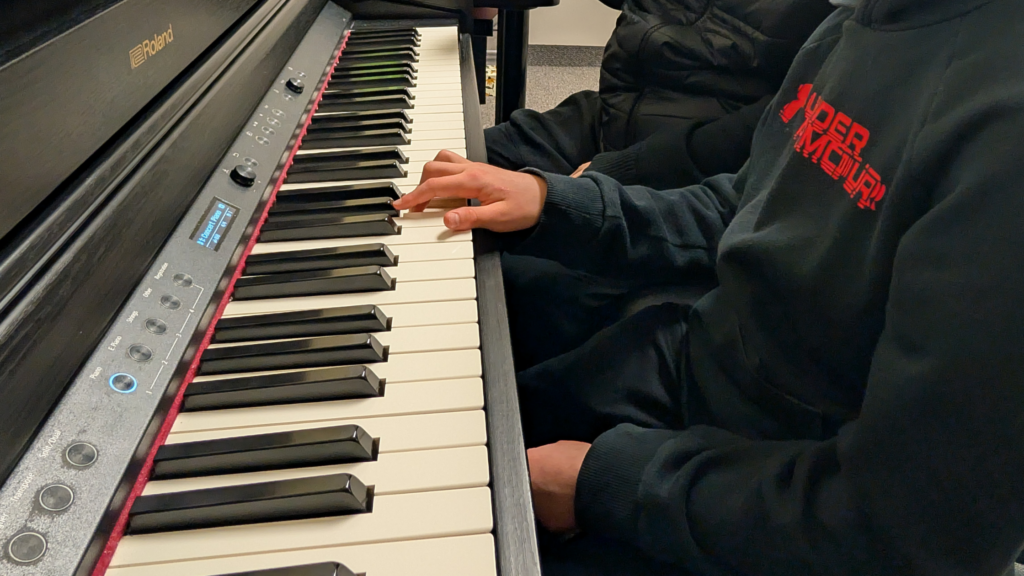One of the most important parts of learning an instrument is what happens between lessons: practice. That’s why we’ve put together these practice tips for beginner musicians. Whether your child is just starting or already a few months in, building solid practice habits early on makes a big difference.
We understand that life gets busy, and fitting in practice isn’t always easy — but it can be simple and manageable. Here are a few tips we often share with students and parents to help make practice smoother, more consistent, and even enjoyable.
1. Keep It Short and Consistent
Daily practice doesn’t need to be long – even 10 to 15 focused minutes a day can go a long way. It’s more effective to play a little every day than to try and cram it all in before the next lesson. If your child is young, short bursts with a timer can help make it feel manageable.
2. Set a Routine
Try connecting practice to an existing part of your child’s daily routine. Right after school? Before dinner? When it becomes part of the day – like brushing teeth – it stops feeling like a chore. Consistency helps music become a natural part of life.
3. Know What to Practice
Each student leaves their lesson with specific things to work on – whether that’s a new piece, a tricky rhythm, or a particular scale. Take a minute after the lesson to look over the notes in their notebook or practice app together. Knowing what to practice makes things easier for everyone.
4. Focus on the Tough Spots
Encourage your child to zoom in on the parts of a piece that are tricky. Playing a song from start to finish is fun (and we want them to enjoy it!), but real progress comes from working on just a few measures at a time. Repetition builds confidence.
5. Slow Down (Really!)
Students often want to play fast – we get it! But slowing down gives their brain and fingers time to work together. A metronome (even an app) can help keep a steady tempo. Speed will come naturally as skills improve.
6. Encourage and Celebrate
Progress isn’t always steady, and that’s okay. Focus on effort – it’s what leads to real growth over time. If your child sits down and practices – even if it doesn’t go perfectly – that’s a win.
7. Ask Questions
If something isn’t making sense, encourage your child to bring it up at their next lesson – or feel free to reach out in between. We’re here to help, and often a small adjustment or explanation can make a big difference.
Learning an instrument is a journey, and no two students move at the same pace. What matters most is that they’re growing, building confidence, and enjoying music along the way.
If you have any questions about how to support your child’s practice at home, don’t hesitate to reach out. We’re always happy to help.




